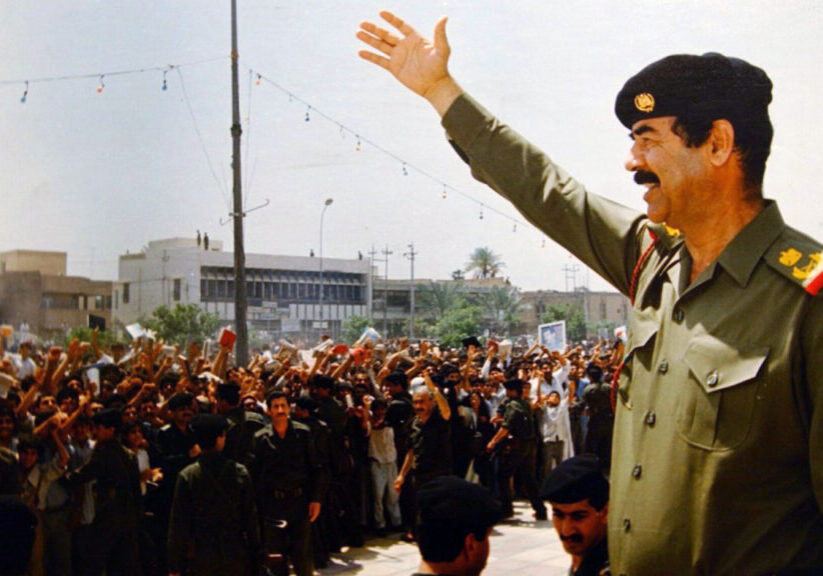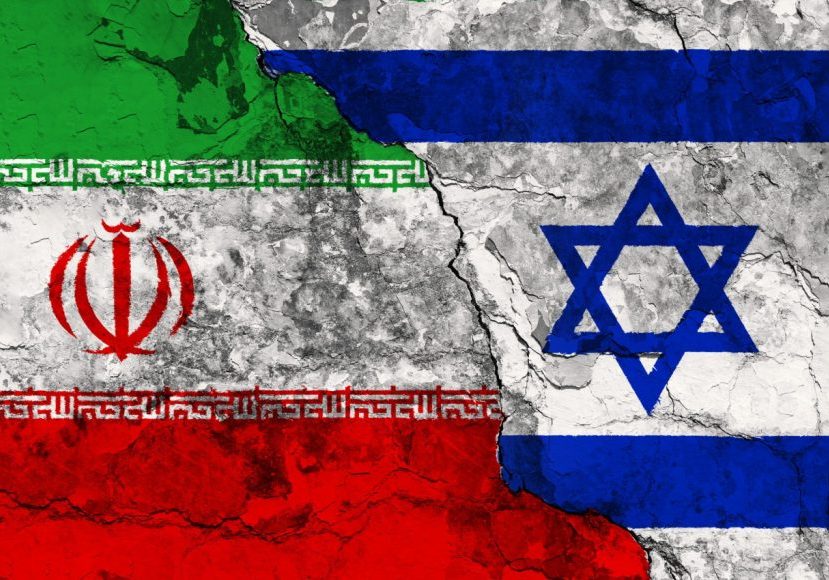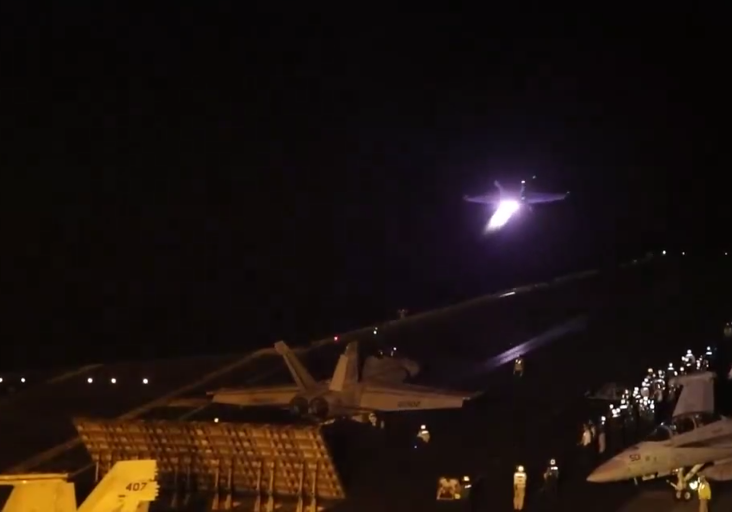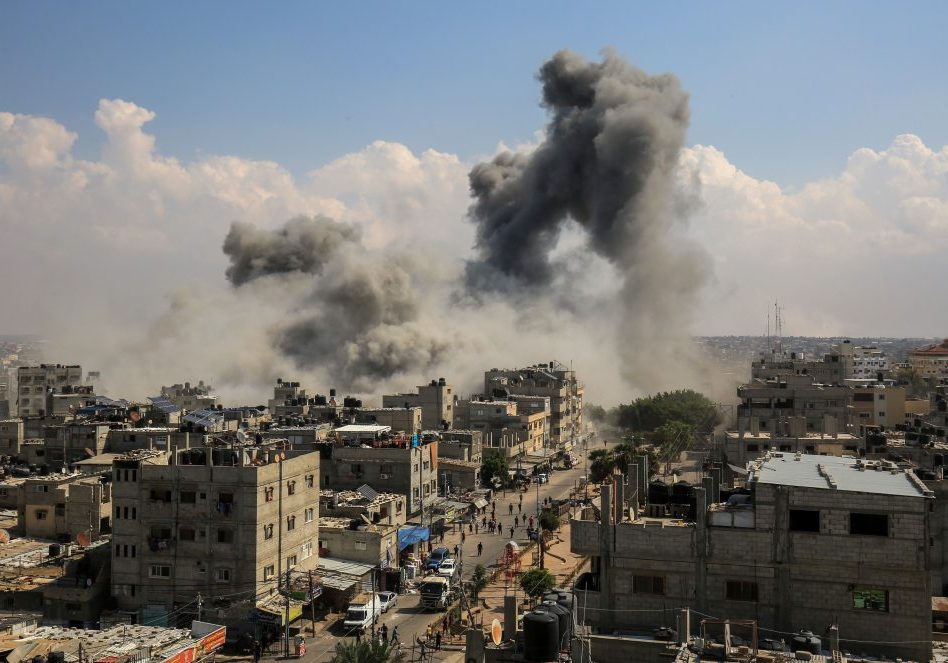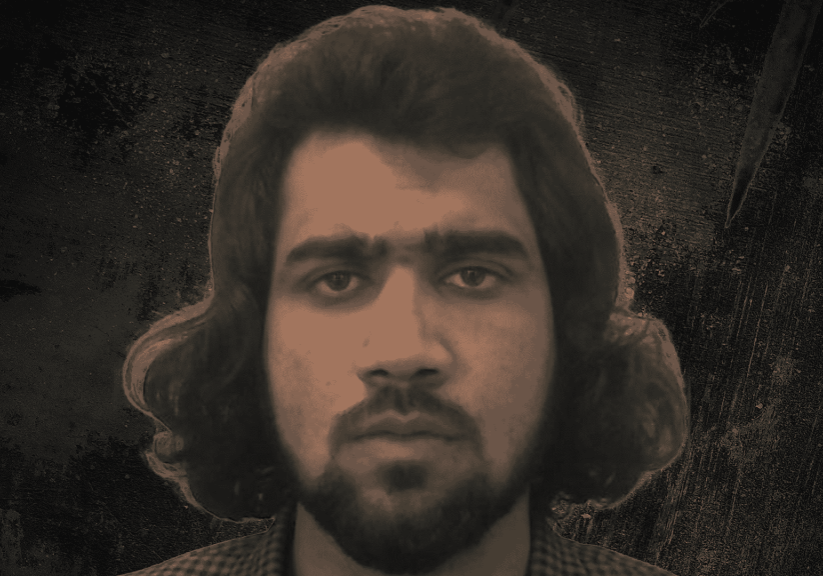Australia/Israel Review
Israel and the Next US President
Nov 3, 2008 | Michael Oren
By Michael Oren
Supporters of Israel are intensely interested in which of the two US presidential candidates, John McCain or Barack Obama, is “best” for the Jewish state. Of course, “best” is a subjective concept, coloured by whether one regards settlements as beneficial or disastrous for Israel, for example, or the creation of a Palestinian state as essential or deadly. The word also assumes a substantial degree of familiarity with the candidates’ positions on issues that impact Israel either directly or collaterally. Attaining such clarity from politicians is difficult even in normal times. But during an election year, it is especially daunting. Speeches by presidential hopefuls geared to special constituencies, statements from commentators and aides, misquotes and gaffes – together these can cloud the contenders’ platforms, particularly on matters as complex and controversial as the Middle East.
Nevertheless, by carefully combing the mass of speeches, interviews, and press releases, a map of where Obama and McCain stand on the peace process and other issues crucial to Israel – the “War on Terror”, the Iraq War, Iranian nuclearisation – may be drawn, and points of distinction flagged. And on the basis of these findings, it is possible to speculate how a McCain or an Obama presidency might interact with Israel, to its benefit as well as its detriment.
After Bush
By necessity, any analysis of the policies of the two candidates must begin with an assessment of the legacy that the president-elect will inherit. During his eight years in office, George W. Bush established new standards for the term “pro-Israel”. He repeatedly affirmed Israel’s right to defend itself against terror, and praised its value as America’s primary Middle Eastern ally. He also expressed a deep ideological attachment to Israel as a democracy and, spiritually, to Israel as the biblical homeland. “You have raised a modern society in the Promised Land, a light unto the nations… [and] a mighty democracy,” he told the Knesset during Israel’s 60th anniversary celebrations, and “you can always count on the United States of America to be at your side.” Less publicly, the president also authorised an unprecedented level of cooperation between the US military and the Israel Defence Forces (IDF).
On the peace process, by comparison, Bush was less categorical. He became the first American president publicly to endorse the emergence of a Palestinian state and, to that end, he opposed the expansion of Israel’s West Bank settlements. Yet Bush also rejected a large-scale repatriation of Palestinian refugees to Israel as well as a return to Israel’s 1967 borders, insisting that any treaty take into account the “current realities” created by the settlements. He refused to deal with Hamas and Hezbollah, even obliquely, portraying them apocalyptically as the embodiments of “darkness” and “evil”.
Bush’s policies disappointed many on the Israeli left who longed for a more activist American role in peacemaking, and antagonised Israeli rightists who resented his support for Palestinian sovereignty and his demands for a settlement freeze. Still, Bush remained singularly popular in Israel – considerably more so, in fact, than in the United States.
The pro-Israel paradigm established by Bush poses a hefty challenge for Obama and McCain. Neither candidate, though, has shied away from meeting it. Both visited Israel during their campaigns, meeting government and opposition leaders, and touring towns along the Gaza border that were regularly shelled by Hamas. In spite of some initial questions surrounding his affection for Israel, Obama has been unexceptionally Zionist, asserting that “the idea of a secure Jewish state is a fundamentally just idea,” and that “Israel’s security is sacrosanct.” McCain, no less effusive, has praised Israel as a bastion of democracy and social justice.
McCain and Obama have pledged to maintain Israel’s “qualitative” military edge by supporting Bush’s proposal for increasing military aid to the Jewish state. Both have called on the Arab states to recognise Israel in advance of Israeli territorial concessions and have vowed to take an active role in the search for peace. Nevertheless, in their approach to that process, and their conception of its outcome, the candidates evince some subtle – and potentially significant – differences.
Parsing the Palestinian question
Take, for example, the issues of Israeli settlements and the borders of any future Palestinian state. While McCain has avoided criticising Israel’s settlement policy and balked at delineating the contours of “Palestine”, Obama has impugned the settlements and taken up Bush’s call for a “contiguous” Palestinian state free of Israeli roadblocks and joined by West Bank-to-Gaza routes. McCain, who did not meet with Palestinian leaders during his Israel visit, has emphasised the Palestinian Authority’s duty to clamp down on terror in accordance with the road map. “We must ensure that Israel’s people can live in safety until there is a Palestinian leadership willing and able to deliver peace,” he stated. Obama, by contrast, has refrained from mentioning the Palestinian Authority’s responsibility in suppressing terror. During his stopover in Israel, Obama visited the Palestinian Authority’s headquarters in Ramallah and met with President Mahmoud Abbas.
Obama and McCain have also differed over aspects of Israel’s domestic politics and foreign relations. Though Obama met with Netanyahu during his Israel visit, previously he expressed reservations about the Israeli right, telling American Jewish leaders that “there is a strain within the pro-Israel community that says unless you adopt an unwavering pro-Likud approach to Israel then you’re anti-Israel.” He has also welcomed the renewal of peace talks between Israel and Syria, and has urged the White House to “support the parties’ efforts to achieve their goal of a negotiated settlement.” McCain, however, has not revealed a preference for any Israeli party and has withheld comment on the Syrian-Israeli discussions. Generally, though, he shares Bush’s reservations about negotiating with Damascus “with no preconditions” – presumably preferring that Damascus eschew terror and forfeit all claims to Lebanon first.
Both candidates have deplored Hamas as a terrorist organisation committed to Israel’s destruction. McCain’s position on Hamas has hardened considerably since 2006 when, shortly after the organisation’s electoral victory, he told a reporter, “They’re the government [and] sooner or later we are going to have to deal with them.” His campaign subsequently retracted the remark and characterised Hamas as a force dedicated not only to Israel’s destruction but to the annihilation of the United States. McCain has endorsed the conditions set down by Bush for including Hamas in peace talks – renunciation of terror, recognition of Israel, and acceptance of previous Israeli-Palestinian agreements – but so, too, has Obama. Yet the Democratic contender seems less adamant than his Republican rival in opposing all communications with Hamas. Obama waited five days before distancing himself from former US President Jimmy Carter’s meetings with Hamas officials; McCain condemned them instantly. And while McCain withheld comment on Israel’s ceasefire with Hamas, Obama greeted it as an opportunity to “bring calm to the people of southern Israel, improve life for Palestinians in Gaza, and lead to the release of [captured Israeli Corporal] Gilad Shalit.”
Obama and McCain also appear to diverge on the peace process’ most divisive issue: Jerusalem. Though supportive of talks to demarcate the final borders of Jerusalem, McCain has been unambiguous in his willingness to recognise unqualified Israeli sovereignty over the city, even prior to negotiations. “Jerusalem is undivided,” he declared. “Jerusalem is the capital and we should move the [US] embassy to Jerusalem before anything happens.” Obama similarly announced that, “Jerusalem will remain the capital of Israel, and it must remain undivided,” surprising many of his listeners at a convention of AIPAC, the pro-Israel lobby group. But he quickly qualified that assertion, explaining that the city’s final status must be determined by Israelis and Palestinians alone and sealed by “an agreement that they both can live with.” Obama has not mentioned moving the American embassy to Jerusalem.
The most fundamental distinction between McCain and Obama on the peace question stems from their perception of the Arab-Israeli conflict and its relationship to other Middle Eastern disputes. In his AIPAC speech, Obama assailed “those who would lay all the problems of the Middle East at the doorstep of Israel.” But in an interview with the Atlantic magazine, he described the conflict as a “constant wound” and “constant sore” that “infect(s) all of our foreign policy” and “provides an excuse for anti-American militant jihadists.” Later still, in an interview on “Meet the Press”, Obama explained that solving the Israeli-Palestinian dispute will help the United States garner Arab support in the conflicts in Iraq and Afghanistan, will weaken Hamas and Hezbollah, and isolate Iran. Such statements seem to indicate that Obama subscribes to the concept, long held by the State Department and reified by the 2006 Iraq Study Group, of “linkage” between the Arab-Israeli and other Middle Eastern disputes. McCain’s position, in this critical case, is far less variable than that of Obama. “[I]f the Israeli-Palestinian issue were decided tomorrow,” he has maintained, “we would still face the enormous threat of radical Islamic extremism.” Defeating that fanaticism, McCain contends, is the prerequisite for – rather than the consequence of – Israeli-Palestinian peace.
On the basis of this comparison, it is reasonable to expect a McCain administration to maintain and perhaps accelerate the Annapolis process initiated by Bush last November, insisting that both Israelis and Palestinians live up to the road map’s requisites. But McCain will be reluctant to pressure Israel, to oppose Israeli claims to Jerusalem, or to link the Israeli-Palestinian conflict with any of the region’s manifold struggles. He would probably not deal with Hamas, even in context of a national unity government with the Palestinian Authority. An Obama presidency can also be expected to continue Annapolis, but with less tolerance for Israeli settlement-building and checkpoints, and greater inclination to see the road to Baghdad and Teheran running through Bethlehem and Nablus. Obama might be expected to show deeper sympathy for the Palestinian demand for a capital in Jerusalem and greater flexibility in including Hamas in negotiations, if only indirectly, through the national unity coalition with Abbas. Obama will probably seek a broader accord, including Syria as well as other Arab countries, while McCain would focus on the Israeli-Palestinian dimension.
How they will fight
In addition to the peace process, Israel has a cardinal interest in the candidates’ attitudes toward other Middle East-related issues, beginning with the “War on Terror”. Here, too, President Bush established a new paradigm based on pre-emptive action against suspected terrorists and their backers. This aspect of the Bush Doctrine accorded well with Israel, which, since its establishment, has reserved the option to strike its enemies pre-emptively. Obama and McCain, however, are markedly divided over the policy and the means for battling terror in the future.
Though both have reiterated their readiness to meet terrorist threats with force, McCain has never abjured pre-emption, stressing his commitment “to uncover [terrorist] plots before they take root.” But Obama’s recent comments suggest that, rather than embark on preventative military incursions, he prefers to treat terror as a criminal act to be prosecuted post facto by the courts. “[I]n previous terrorist attacks, for example, the first attack against the World Trade Center (in 1993), we were able to arrest those responsible, put them on trial,” he explained to ABC “News”. “I have confidence that our system of justice is strong enough to deal with terrorists.”
The War on Terror, for both candidates, is inextricably linked to the conflict in Iraq. McCain sees the latter as a natural extension of the former; Obama views the second as a dangerous diversion from the first. Unlike the candidates’ stances on the peace process and the fight against terrorism, which are often open to interpretation, their statements on Iraq leave little latitude for debate.
Obama asserts that the Iraqi war has drained America’s resources and inhibited it from effectively fighting terror. In keeping with the recommendation of the Iraq Study Group, he has called for a 16-month phasing out of the American military involvement. Though he has acknowledged the need to make “tactical adjustments” as the withdrawal proceeds, Obama has determined that “it’s time to end this war” and focus on Afghanistan.
McCain insists that America “is winning and will win” in Iraq, which he regards as the central theatre in the struggle against Islamist terror. An ardent defender of the Bush Administration’s “surge” strategy, which he wants to apply to Afghanistan, McCain believes that withdrawal from Iraq at this time will endanger Americans at home and bolster Iran and al-Qaeda. McCain has repeatedly cited 2013 as a target date for withdrawal.
These disparities are rife with ramifications for Israel. Long time advocates of pre-emption, Israelis may be disappointed by an Obama administration that abandons the tactic and recoils from further preventative action against terrorists. They will have to grapple with the fallout of an American evacuation from Iraq, which is almost certain to be perceived in the region as an Islamist triumph. Still, Israel could benefit from a United States that is less inclined to pursue polices unilaterally and more in line with international opinion.
The situation might be reversed under McCain. The US would continue to press its anti-terror campaign in the Middle East and stay the course in Iraq but remain to a large extent isolated globally.
Addressing the Iranian challenge
Yet the ultimate crucible of the candidates’ positions affecting Israel lies not in the peace process, in the War on Terror, or even in Iraq, but rather in the burgeoning crisis with Iran. The master of Hamas and Hezbollah, the dominant partner of Syria, and the rising regional hegemon, Iran poses multiple threats to Israel’s security – and, through its nuclear program, a danger to Israel’s existence. The Islamic regime that routinely pledges to “wipe Israel off the map” could easily transfer nuclear weapons to one of its terrorist proxies while prompting other Middle East states to develop similar armaments. Israel could soon find itself in the epicentre of an unstable nuclear neighbourhood. On no other issue are the Jewish state’s interests in the platforms of McCain and Obama so paramount and, potentially, existential.
As McCain’s stance on Hamas once hardened, so too has Obama’s on Iran. After initially ranking Iran with Cuba and Venezuela, states that “do not pose a serious threat to us the way the Soviet Union posed a threat to us,” Obama subsequently assured AIPAC members that “the danger from Iran is grave, it is real, and my goal will be to eliminate this threat.” Later still, in Israel, he described a nuclear-armed Iran as “a game-changing situation” that would result in a new Middle East arms race and undercut America’s non-proliferation efforts worldwide. Consequently, Obama swore to employ “all elements of American power,” including military force, to prevent Iran from obtaining nuclear weapons. At the same time, though, Obama has emphasised the need for discussions with Iranian President Mahmoud Ahmadinejad, “without self-defeating preconditions, but with a clear-eyed understanding of our interests,” to locate points of common interest and possibly diminish tensions. Such talks, Obama stresses, will be necessary to galvanise international support for more forceful action against Iran, should it become necessary.
More consistently than Obama, McCain has characterised Iran as a threat to the free world, “hell-bent on the destruction of Israel, hell-bent on driving us out of Iraq, [and] hell-bent on supporting terrorist organisations.” To deter Teheran, he has recommended a multi-tiered strategy of escalated sanctions and divestment campaigns, without ruling out an eventual use of force. “The military option has to be there,” he insisted. But contrary to Obama, McCain rejects the very notion of dialogue with Ahmadinejad. This, he argues, would weaken Iranian moderates and reinforce the radicals. “It’s hard to see what such a summit would actually gain,” McCain observed, “except an earful of antisemitic rants and a worldwide audience for a man who denies one Holocaust and talks… about starting another.”
The McCain-Obama split over Iran was poignantly reflected in their reactions to the Kyl-Lieberman Amendment passed in the US Senate in September 2007. Endorsed by three-quarters of the Senate, the amendment recognised Iran’s Islamic Revolutionary Guards as a terrorist group and authorised the use of “all instruments of United States national power” to protect Iraq from Iran and its proxies. Though neither senator participated in the vote, McCain hailed the bill for sending “exactly the right message to Iran, to the region and to the world.” Obama had previously sponsored a bill designating the Revolutionary Guards as terrorists, but he objected to the linkage between Iran and Iraq in Kyl-Lieberman. He described the bill as “sabre-rattling” and a “reckless” attempt to perpetuate the American intervention in Iraq and possibly justify attacking Iran.
The Obama-McCain split over Iran presents Israel with life-and-death dilemmas. Israel would certainly gain from a president who built up international legitimacy by exhausting all possible options with Iran, including offers to communicate, before resorting to violence. But if diplomacy fails to modify Iranian behaviour and instead furnishes Teheran with time to complete its nuclear weapons program, the outcome for Israel could be catastrophic.
Alliance in the balance
The US presidential election of 2008 is arguably the most pivotal for Israel in its 60 years of existence. The next occupant of the White House can immensely influence the course of Israel’s relations with the Palestinians, the Syrians, and a range of Arab regimes. By upholding or disavowing pre-emption or by reducing or augmenting American troop strength in Iraq, he can radically sway the Middle East’s balance of power. Most fatefully, in his determination to prevent Iran from acquiring nuclear weaponry, he can fortify Israel’s security, if not ensure its survival.
In casting their ballots, though, Americans should be mindful of the fact that a president’s ability to pursue any course of action in the Middle East is greatly limited by events and circumstances in the region. Political upheaval in Israel and the Palestinian territories, the recrudescence of large-scale civil strife in Iraq or Lebanon, the acceleration of Iran’s uranium enrichment program – all would mitigate the chances for an American peace initiative, for troop withdrawals, and non-violent action against Iran. In such cases, presidential platforms will be overshadowed by the need for crisis-mode decision-making, for projecting power and exercising prudence. Ultimately, Israel is best served by a president capable of grappling with rapid and often turbulent change. Pro-Israel voters and observers, then, should be less concerned with which candidate, John McCain or Barack Obama, favours or opposes settlements or is open or opposed to dialogue with Iran, but with which is the ablest leader.
Dr. Michael Oren is a senior fellow at the Shalem Centre in Jerusalem and a professor in the Foreign Service School and the Program for Jewish Civilisation at Georgetown University. His most recent book is Power, Faith, and Fantasy: America in the Middle East, 1776 to the Present (Norton, 2007). A longer version of the above appeared in the Journal of International Security Affairs. © Journal of International Security Affairs, reprinted by permission, all rights reserved.
Tags: Iraq


